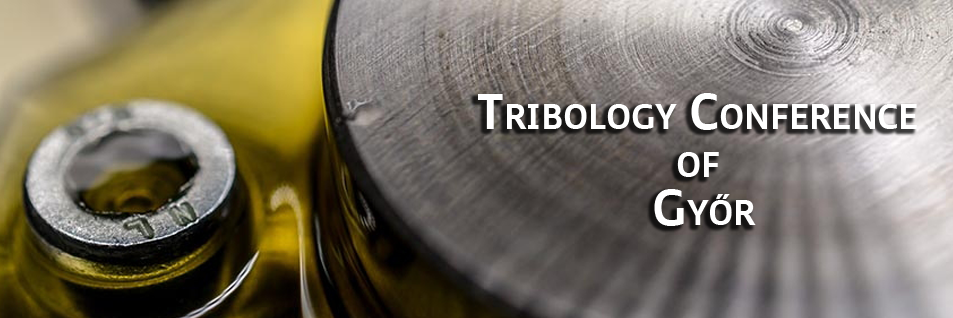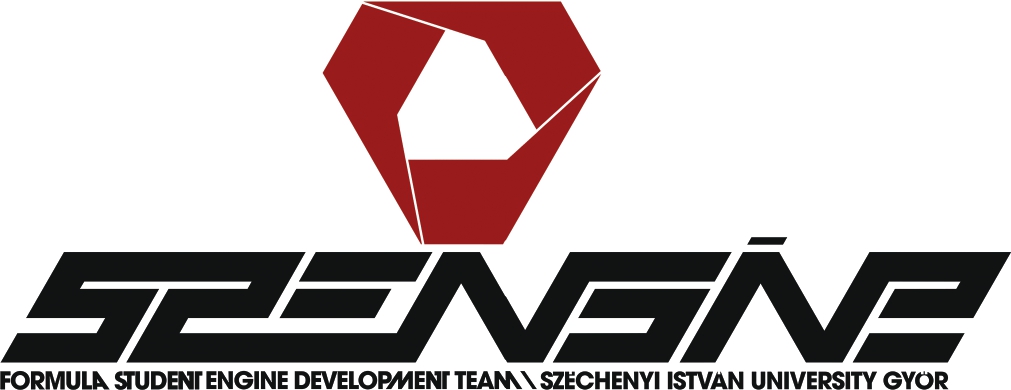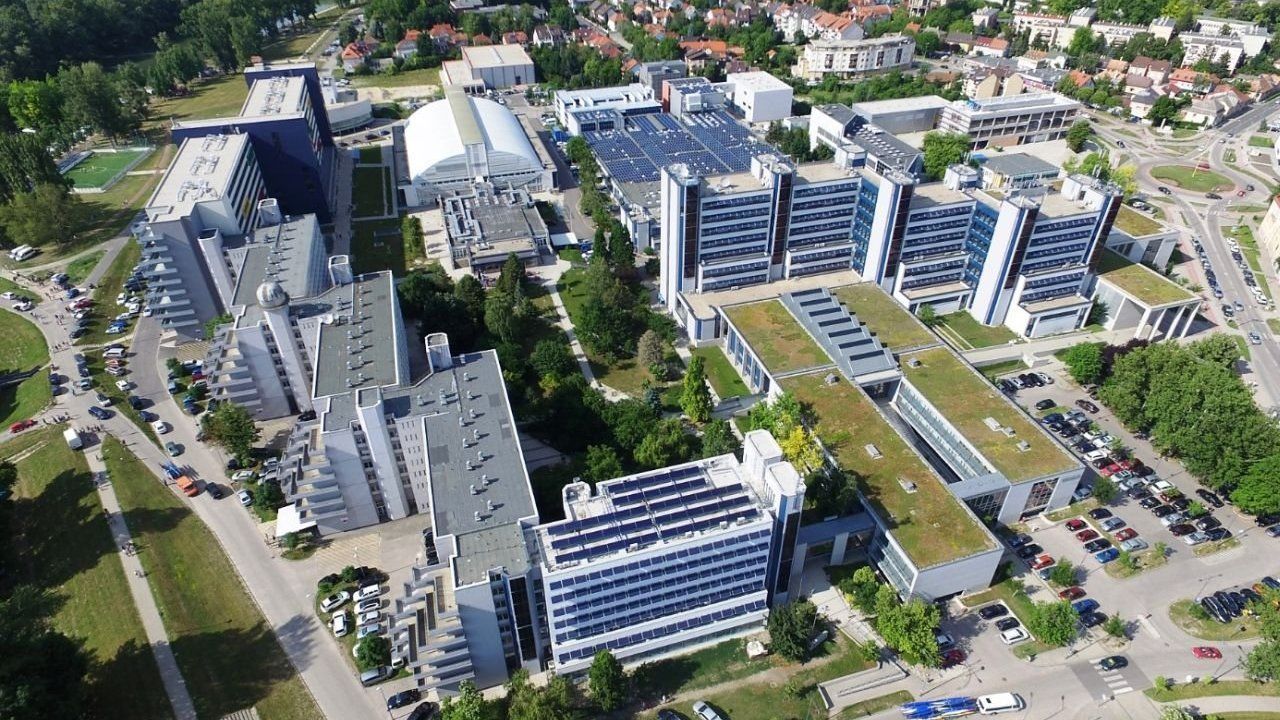Bachelor’s in Vehicle Engineering / Master’s in Vehicle Engineering
Audi Hungaria Faculty of Automotive Engineering
Bachelor’s in Vehicle Engineering
|
Level of training |
Time schedules |
Method of finance |
The name of the course |
Tuition (half semester) |
Training period (half semester) |
|
BSc |
Full-time |
state-aided |
Vehicle Engineering |
supported |
7 |
|
BSc |
Full-time |
self-financing |
Vehicle Engineering |
325 000 Ft |
7 |
|
BSc |
Correspondence |
state-aided |
Vehicle Engineering |
supported |
7 |
|
BSc |
Correspondence |
self-financing |
Vehicle Engineering |
295 000 Ft |
7 |
Secondary School Certificate Requirements
In addition to Mathematics it is also compulsory to choose one other subject from the following: Biology, Physics, or a professional preparatory subject (basic Electronics, Architecture and Construction, Engineering, Information Technology, Environmental Protection-Water Management, Traffic studies (Transport or Traffic Engineering)).
About the Profession
Experts working in vehicle engineering field have a fundamental knowledge of sciences, economics, humanities and the profession itself. These cover the following: Mathematics, Physics, Chemical Technology, Mechanics, Hydrodynamic and Heat Transfer Study, Electrotechnical Engineering, Material Knowledge, Economics, Business Economics, Law, Health and Safety, Vehicle Engineering, Vehicles and Mobile engines, Information Technology, Drawing, Vehicle and Power Elements, Vehicle Design and Examination, Vehicle Structure Materials and Technology, Vehicle Production and Repair, Equipment of Hydrodynamic and Heat Transfer, and Vehicle Dynamics. To become a quality vehicle engineer the applicant needs to have problem solving skills and systematic disposition.
About the Training
During the students’ studies they obtain knowledge of scientific and specific vehicle engineering, vehicle electronics, vehicle information technology, traffic and transport safety, diagnostic, vehicle operation, maintenance, financial management. They are also prepared to develop, design and produce vehicles and main units. In addition they are also trained to analyse the procedures and safety operations. Professional modules in Vehicle Engineering, Internal Combustion Engineering and Railway Engineering provide the students with special professional knowledge in the respective fields.
Further Education
After obtaining a Bachelor’s degree, students can continue their studies at a Master’s level in the following fields: Vehicle Engineering MSc, Mechatronics MSc, Traffic Engineering MSc, Logistics Engineering MSc, and Teacher-Engineer Teacher MSc.
Employment
Our students are typically employed by the following companies: large and medium sized companies (e.g., Audi), companies operating and maintaining vehicles (Volán, BKV (Budapest Traffic Company), MÁV (Hungarian Railways), transport authorities, vehicle dealerships, and companies operating and maintaining vehicles. Some types of positions that are taken by graduates are vehicle operations and maintenance technical leader, technical leader of vehicle leaders, and professional in vehicle documents.
Language exam
A foreign language exam (complex B2 exam) is necessary to obtain a degree (in one of the following languages English, German, French, Italian, Spanish or Russian). From the 2011-2012 school year there have been no exemptions from this requirement (NOT EVEN upon request).
You can also participate in dual training further information is available at: here
Vehicle Engineering MSc (in German and English)
|
Level of training |
Time schedules |
Method of finance |
Optional Speciality |
Tuition (half semester) |
Training period (half semester) |
|
MSc |
Full-time |
state-aided |
Vehicle Engineering (in Hungarian) |
supported |
4 |
|
MSc |
Full-time |
self-financing |
Vehicle Engineering (in Hungarian) |
400 000 Ft |
4 |
|
MSc |
Full-time |
state-aided |
Vehicle Engineering (in German) |
supported |
4 |
|
MSc |
Full-time |
self-financing |
Vehicle Engineering (in German) |
400 000 Ft |
4 |
|
MSc |
Full-time |
state-aided |
Vehicle Engineering (in English) |
supported |
4 |
| MSc | Full-time | self-financing |
Vehicle Engineering (in English) |
400 000 Ft | 4 |
|
MSc |
Correspondence |
state-aided |
Vehicle Engineering (in Hungarian) |
supported |
4 |
|
MSc |
Correspondence |
self-financing |
Vehicle Engineering (in Hungarian) |
400 000 Ft |
4 |
Previous accepted qualifications can be divided into two categories:
- A Traffic Engineering Bachelor’s degree is accepted at full credit value.
- For a Master’s degree that requires preliminary training, the credit points must have prior approval.
- Sciences (20 credits) such as Mathematics, Physics, Chemistry, Mechanics, Material Sciences, Hydrodynamic and Heat Transfer Studies, Electrotechnics;
- Economics and humanities (10 credits) such as Economics, Business Economy, Environmental Protection, Quality Assurance, Health and Safety, Social Sciences;
- Professional knowledge (25 credits) such as General Mechanics, Traffic Systems;
- Specialist knowledge (15 credits) such as Knowledge of Technical Equipment used in Hydrodynamics and Heat Transfer, and Basics of Vehicle Design and Testing.
To be accepted at the Master’s level the student must have at least 40 credits in the above-mentioned areas. The missing credits have to be obtained within two terms while simultaneously learning in the Master’s program and in accordance with the Education and Exam Regulations.
The form for recognizing previous education in order to apply for the Master’s degree IS AVAILABLE HERE INNEN
About the Training
The purpose of the Vehicle Engineering MSc degree is to educate engineers who have high quality and level of knowledge of sciences specialising in engineering, technical, information technology and economic management in addition to vehicle knowledge. They are able to improve, design and produce road vehicles and railway carriages and are able to research procedures during operation of such vehicles. Furthermore they can operate, maintain, diagnose and repair these vehicles while taking into consideration and following the necessary safety requirements, environmental protection, and energy management into consideration.
The training prepares the future graduates to be managers, to take part in development research of vehicles, and for further education at in a doctoral program.
Alongside their studies, students can take part in research and development activities such as, developing and designing a solar energy powered race car within the framework of the Shell ECO Marathon and developing the engine of a race car within the framework of the Formula Student.
Optional modules (specialisations)
- internal combustion engines
- vehicle system engineer
- alternative power systems (in English)
- vehicle development (in English)
Further Education
At our university there is opportunity for our students to take part in the doctoral program of the Multidisciplinary Doctoral School of Engineering Sciences.
Employment
Students at the Master’s level are qualified to work in the vehicle industry as a design engineer, research and development engineer, and, after gaining the necessary industrial experience, become a middle and/or senior manager.
Potential employers are Audi, GM, Suzuki and Rába Companies and businesses operating and maintaining automobiles and commercial vehicles like Volán, BKV, MÁV, regional transport companies, companies supplying spare parts and trading companies.
Additional employment opportunities include transportation authorities, vehicle industry business development, insurance companies, government and local authority institutions, vehicle dealerships and repair businesses.
Language exam
A foreign language exam (complex B2 exam) is necessary to obtain a degree (in one of the following languages English, German, French, Italian, Spanish or Russian). From the 2011-2012 school year there have been no exemptions from this requirement (NOT EVEN upon request).
10 reasons to study internal combustion engineering at our university
- Professional preparation that meets the demands of engine producing companies and suppliers
- Bilingual training (in Hungarian and German)
- Research tasks in engine mechanics and tribology
- Access to the international scientific network
- Practical experience from projects in the department
- Engine disassembly and analysis
- Thesis work in conjunction with a German speaking company
- Opportunity to participate in the Formula Student competition
- Future orientated training using the most modern engine testing benches
- The fundamental basis of the education takes into consideration the production technology of construction and engine technics
- Developing skills, additional to professional experience and knowledge, in areas such as independent work, teamwork, presentations, etc.
- Upon completion of the degree, excellent opportunities for employment in the automotive industry





